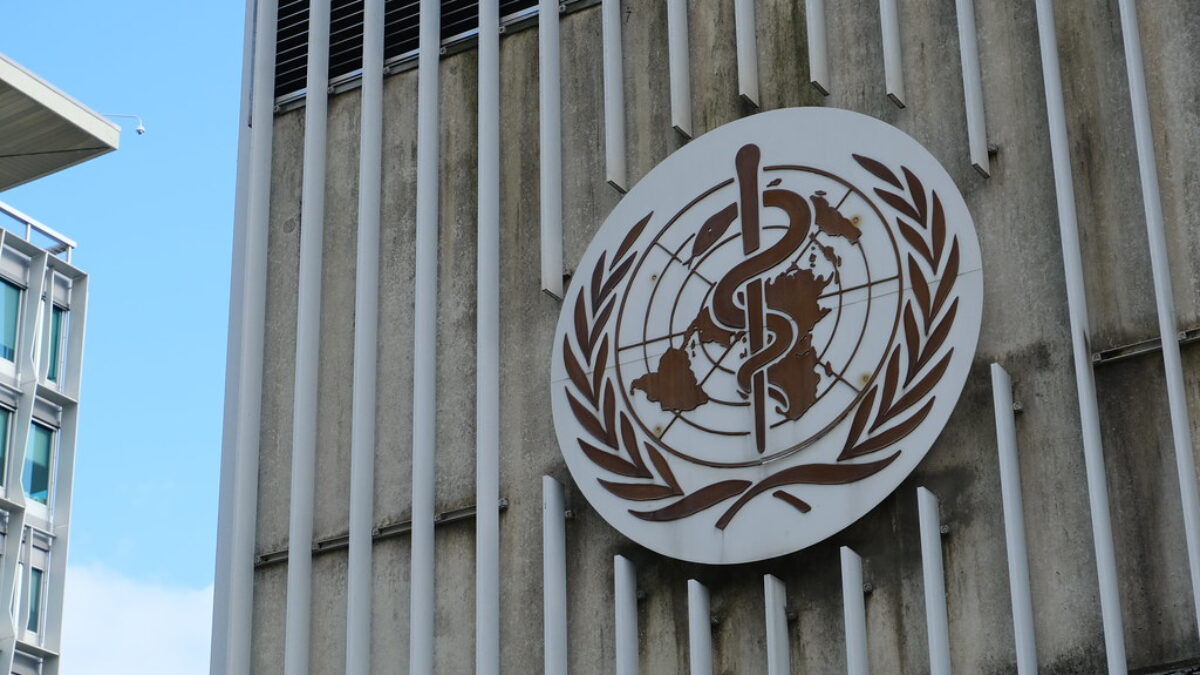
“Public health” is a nice, altruistic-sounding phrase, but more often than not, it’s just an amorphous category, controlled by a select group of individuals. Yielding dominion to those unelected individuals often creates a honeypot for any malicious actor who intends to leverage “public health” for personal gain. There is perhaps no better example of this than the relationship between the World Health Organization and the Chinese Communist Party.
The WHO, being an international organization, cannot exert direct power over policy. It does, however, command considerable influence worldwide, demonstrated by the world’s collective adherence to forgoing the Greek letter “Xi” in the naming of the new omicron variant. The WHO was also instrumental in selling the Western world on lockdowns as an essential COVID-19 prevention measure, and many social media platforms have hinged their COVID-19 “misinformation” censorship policies to WHO guidance. In short, the WHO wields tremendous political and informational influence.
The greatest cause for concern in regards to the trustworthiness of the organization is Director-general Tedros Adhanom Ghebreyesus, the highest-ranking member of the WHO. Tedros has been accused of abetting the massacre and imprisonment of dissident protestors in his home country of Ethiopia while he held the position of foreign minister and of covering up multiple cholera outbreaks when acting as health minister.
Human rights abuses aside, Tedros also maintains close ties to the Chinese Communist Party. During his tenure in the Ethiopian government, Tedros co-authored an article in a CCP-run news outlet vowing to maintain “a fully-fledged strategic partnership” with China.
In 2017, when the incumbent director-general, China’s Margaret Chan, had reached the end of her term, the CCP made extraordinary efforts to secure the position for Tedros. Before stepping down, Chan restructured the voting scheme to give developing countries on China’s bankroll an anonymous and equal vote, whereas previous elections were decided by a panel of predominantly Western nations.
Xi Jinping also stepped up investment pledges to poorer countries ahead of the election, resulting in a landslide success for Tedros. Just one month after being elected, Tedros traveled to China to pledge the WHO’s commitment in supporting the country’s Belt and Road initiative.
Now let’s discuss why this matters in the context of the recent pandemic. The general consensus is that the first case of SARS-COV-2 appeared in Wuhan, the capital of Hubei province, sometime between October and November.
Interestingly, Hubei’s purchases of PCR tests nearly doubled in 2019, with the largest purchaser being the Wuhan University of Science and Technology and purchases beginning as early as May. This suggests either the virus was spreading far before current estimates or the CCP had reason to anticipate its release.
The Western world has wisened up to the deceitful ways of the CCP, so it’s no surprise that China was not forthcoming. Enough Westerners did not, however, expect the WHO to aid in the cover-up.
In Taiwan, late December 2019, health monitors flagged evidence that the Wuhanese virus was becoming serious and likely transmitting from human to human. They notified the WHO immediately. Despite receiving this intelligence, the WHO parroted false claims made by the CCP in mid-January 2020 that COVID-19 had “no clear evidence of human-to-human transmission.” The tweet remains on Twitter to this day:
https://twitter.com/WHO/status/1217043229427761152
Once the WHO finally acknowledged that human-to-human transmission was likely, the agency continued to urge countries not to restrict travel to and from China even though China had already banned interstate travel out of Hubei one week earlier. The WHO did not provide any rationale for this recommendation. During this time an estimated 430,000 people traveled between China and the United States.
This WHO’s failure to adequately communicate the threat and instead actively push for open borders with China certainly exacerbated the onset of this pandemic. It’s important to note that Taiwan, the only country privy to the WHO’s ineptitude at the time, banned travel from Wuhan in mid-January and soon after applied the ban to all of China.
This policy paid off as Taiwan handled the virus exceptionally well, with only seven COVID-19 deaths in 2020. This is remarkable when compared to other Asian nations and considering their population size is almost 24 million.
As Richard Ebright of Rutgers University’s Waksman Institute of Microbiology noted, “We can see what happened when Taiwan, cut off from WHA guidance and shunned by the WHO, made its own decisions and was largely Covid-free for 2020 and even through 2021. Had other nations implemented tight border restrictions by the middle of January, the situation would have been very different.”
It would be wise to follow in Taiwan’s footsteps and maintain a healthy skepticism towards future WHO guidance. In addition, those who are truly interested in preserving the integrity of “public health” must keep watch over institutions such as the WHO, FDA, CDC, and NIH, and recognize that they are vulnerable to corruption.
As Thomas Jefferson said, “The price of liberty is eternal vigilance.” Perhaps, also, we should consider rescinding some of the power and influence these agencies wield so as not to further tempt malicious actors.









